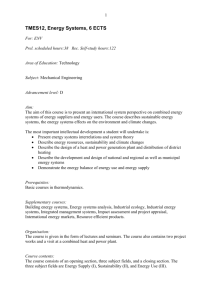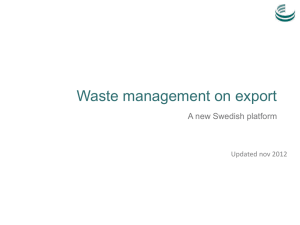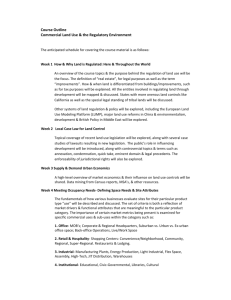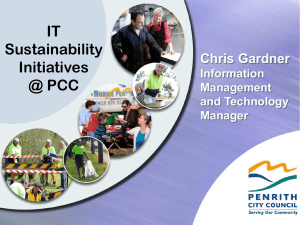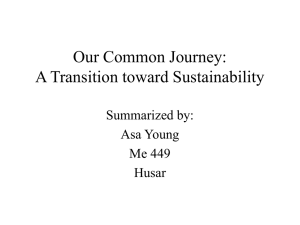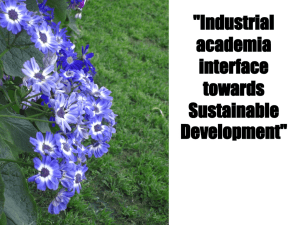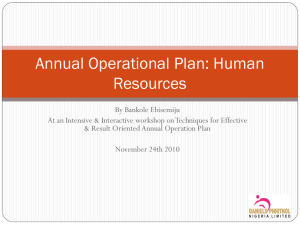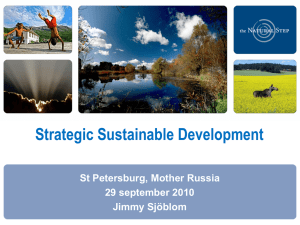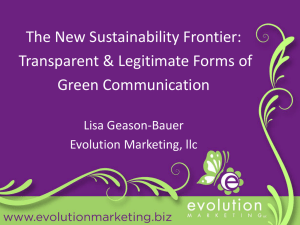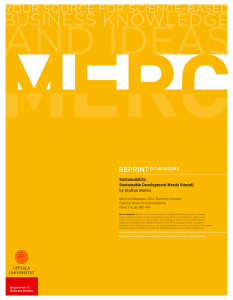Slide 1 - City of Madison, Wisconsin
advertisement
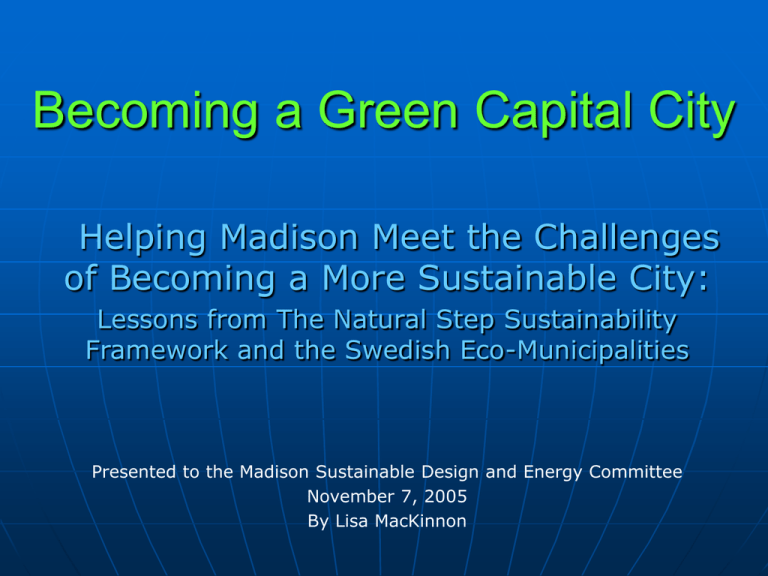
Becoming a Green Capital City Helping Madison Meet the Challenges of Becoming a More Sustainable City: Lessons from The Natural Step Sustainability Framework and the Swedish Eco-Municipalities Presented to the Madison Sustainable Design and Energy Committee November 7, 2005 By Lisa MacKinnon Stockholm, Sweden Madison, Wisconsin What is an “Eco-Municipality”? An eco-municipality aspires to develop an ecologically, economically and socially healthy community for the long-term. What is “Eco”? “Economic progress and ecological balance are to be united into a common developmental strategy. We believe that this is the best way to draw benefit from what the local authorities have to offer and attain sustainable development.” The National Association of Swedish Eco-Municipalities (SEkom) (quoting Ekotopen Foundation plan of action, Övertorneå, 1986) The Challenge: Speaking A Common Language • Engaging staff at all levels • Aligning individuals and city departments with a variety of interests, functional responsibilities and resource pressures. Becoming an “Eco-Municipality” Initial Steps • Adopt a sustainability framework The Natural Step / APA Sustainability Objectives • Commit to a process for implementing this framework • Actual implementation of sustainable development and municipal operations is unique for each community Swedish Eco-Municipalities • Almost 70 municipalities (1/4) in Sweden are official EcoMunicipalities • Range in size from 300 to over 700,000 • Use a common set of sustainability objectives—The Natural Step—as their guiding policy • Different approaches, different scales, sustainable results Swedish Eco-Municipalities and Renewable Energy Umeå Davå power plant 99.5% efficiency Fueled entirely by city’s solid waste Övertorneå 100% free of fossil fuels for municipal operations. Eskilstuna Combined heat and power (CHP) biomass plant 90% efficiency rate 95% of city’s winter heating and summer cooling 25% of electricity req’ts 38% reduction in fossil fuels for heating All in 4 years! Falkenberg “Solar array” on over acre of land 30% of electricity for homes, business and institutions from renewables Sala 1991: Sala decides to become an eco-municipality Highlights of the changes made in Sala 1999, new combined heat and power plant went on line. Ten municipal cars run on ethanol or biogas. Hired consultants to develop plan to eliminate heavy metals in soil. 1991, opened recycling center for 20 types of materials. 1992, district heating system switched its energy source from coal and oil to renewables. Hammarby Sjöstadt, Stockholm How did they begin? Municipal and Public Training in the Natural Step Framework Umeå -50 department supervisors trained - One working day be set aside to train all city departments Sala - 2000 county employees trained -10% of the population Falkenberg - 60% of all municipal employees trained in the Natural Step approach to sustainable development Benefits of The Natural Step Sustainability Framework • Provides a shared understanding and language • Involves all departments and levels of staff • Provides process to identify, organize and prioritize actions and investments for sustainable municipal operations • Can be used with the City’s existing plans and systems More Benefits of The Natural Step Sustainability Framework • Connects long-term sustainability objectives with day-to-day actions and decisions • Opportunity for the city to provide leadership on sustainable development and operations for individuals, businesses and the community as a whole • Opportunity for the City to be a proven and successful contributor to a more sustainable community The Natural Step Framework ~ Taking Steps Toward A Sustainable Future Questions? Lisa MacKinnon Policy Director 608/259-1000 lmac@1kfriends.org www.1kfriends.org
